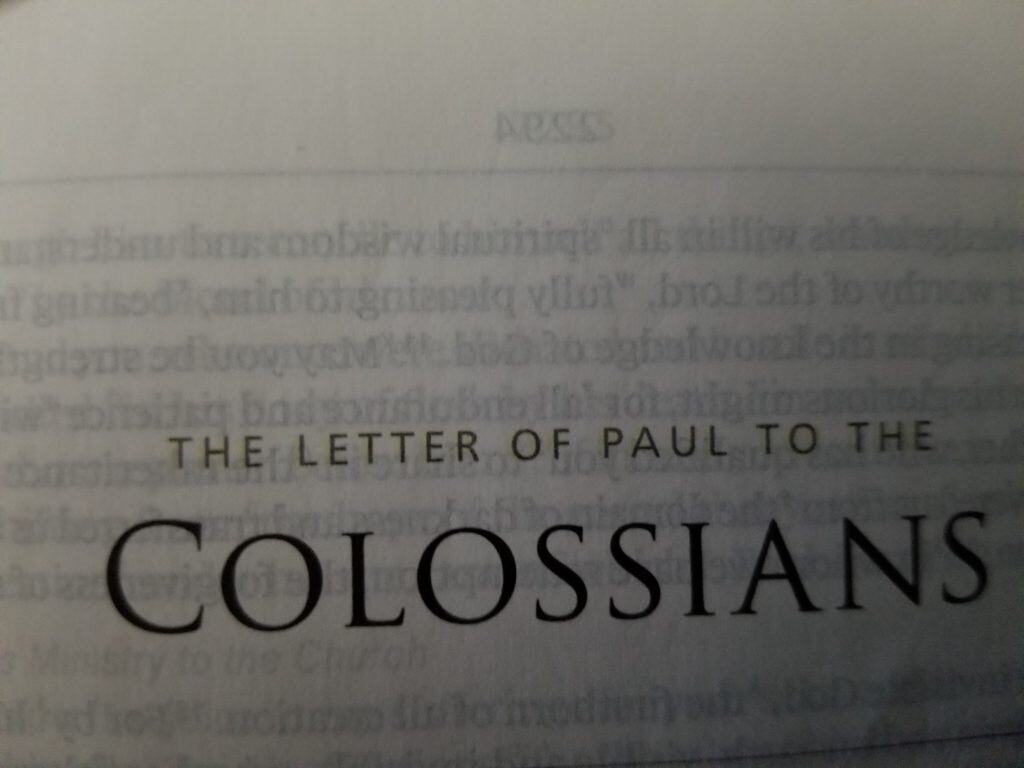⏱️ Estimated Reading Time: 7 min read
Do you have a wish list for your church? Things you would like to see changed about your local church? Maybe you wish your church had more options for children or more Bible studies. Perhaps you wish your church had a counselor hired on staff. Perhaps you wish your church had a larger congregation. Or do you wish they had more comfortable seats? When my husband and I began our search for a church to call home, I had a list. There were certain things I wanted to see in a church before I committed to serving in it.
Paul had a list of things he desired to see present in the church in Colossae, along with the others he had yet to see face-to-face. In Colossians 1:29-2:4, Paul tells us of this desire and how he struggles to see it come to be in each of these churches.
At first glance, this passage may look too personal for us to share in or take away from as he discusses his own concerns for these specific churches. But we know that the entire Bible is profitable for teaching, for reproof, for correction, and for training in righteousness (2 Timothy 3:16). Perhaps this passage of Paul’s “wish list” will challenge you and what you desire to see in your local church, and how you go about making it happen.
Paul Struggles Deeply, But Not Alone
Beginning in Colossians 1:29, Paul says, “For this I toil.” The word, “For,” takes us back to Colossians 1:28 which tells us what Paul is toiling for: “Him we proclaim, warning everyone and teaching everyone with all wisdom, that we may present everyone mature in Christ” (ESV).
Paul explains this desire as something for which he toils and struggles. He works hard, perhaps even to the point of exhaustion, that others would be made complete in Christ. In Paul’s efforts to preach the gospel and exhort believers, he was chased and beaten by mobs, taken captive into prisons, whipped by soldiers, verbally assaulted, had his character called down unjustly, and endured shipwrecks.
None of this hindered Paul as he worked tirelessly towards his great desire for the churches. Why? Because he worked through the power of Christ. Paul says that he struggled, “with all [Christ’s] energy that he powerfully worked within me” (v. 29). Paul knew very well that his toil was not one done independently. He could only toil as he did because Christ was his fuel.
This first verse pokes at my own heart. What do I look to as my energizer for my ministry? Where do I seek refreshment when I need it or strength when I am weak from serving? Like Paul, do I come empty-handed to Christ in need of help, or do I try to run on my own? Who or what is my energy source? Is it Christ? If it’s not, I should not be surprised when I lose momentum quickly and give way to spiritual exhaustion. But if it is Christ, I can expect to continue on strong just as Paul did.
Who Paul Struggled For
In Colossians 2, Paul writes that his struggle is for the Colossian church, the Laodiceans, and the rest of those who had not seen his face. These were churches that Paul did not know personally—he wasn’t even the one who planted them. And yet he struggled just as deeply for them as if they were his congregation. His heart broke for them.
Though we don’t know all the situations in each of these churches, we do know from this letter that the Colossians were being attacked by false teachers within the church. People tried to lead them astray with heretical views of Christ, binding them to Jewish practices, and convincing them that they needed to seek out special knowledge. As a lover of Christ and his gospel, this must have troubled Paul’s heart to hear.
Paul struggled and toiled to see them mature so that their faith would not become so easily swayed by these false teachers, but could rest firmly on the truth of the gospel they already knew. Once again, the Scripture challenges my own heart. Do I share in the same agony as Paul for the church, for my church? Do I have such a love and compassion for the church at large, even those I have never met? Or has my burden become self-focused, only on myself?
Paul’s Struggle
Finally, we come to what Paul is struggling to see in these churches. He first says that he wants their hearts to be encouraged. Paul wants to see this church have strong hearts that find courage in Christ. He knows persecution and suffering are inevitable for them, which is why they will need encouraged hearts for whatever may come. They will need to find their comfort in God alone, rather than the fleeting things of this world if they are to endure in sound doctrine and lasting faith.
Secondly, he writes that he desires to see them, “knit together in love.” Paul wants to see this church held together by their love for one another; not divided over minor disagreements within the community. Being united in love this way, their hearts would be strengthened. Matthew Henry writes, “The stronger our faith is, and the warmer our love, the greater will our comfort be.”[1]
His third desire is to see them reach all the riches of and assurance of knowing Christ. In the midst of the false teaching circulating in this church, without a firm foundation of their salvation, the courage of the Colossians would waiver. Paul desired to see them understand and know the true gospel to have a solid assurance of faith.
The knowledge and wisdom needed for this assurance can only come from Christ, “in whom are hidden all the treasures of wisdom and knowledge” (v. 3). The false teachers may have claimed to have special or elite knowledge (a common teaching in Gnosticism), but Paul wanted the Colossians to find their comfort and assurance in Christ alone, not in human wisdom. Human wisdom is limited, but Christ’s wisdom exceeds it all—only his wisdom is infallible and utterly trustworthy because Christ is perfect in all ways.
Paul didn’t even want people resting on his wisdom! As he said to the Corinthians, “And I when I came to you, brothers, did not come proclaiming to you the testimony of God with lofty speech or wisdom. For I decided to know nothing among you except Jesus Christ and him crucified” (1 Corinthians 2:1-2). Rather than being deluded by the false teachers with plausible arguments (v. 4), Paul wanted the church to be entirely convinced of their faith in Christ alone.
Paul has three major concerns that he is struggling to bring about in the church: That their hearts may be encouraged, they would be knit together in love, and they would reach all the riches of full assurance of understanding and knowledge of Christ. This is the great heart of the apostle, the great struggle he has for the churches who have not seen him face-to-face.
As I study this passage, I am challenged to see if I share this same desire and struggle as Paul, for not only those who I love and know but also those I have yet to meet face-to-face. Is my church “wish list” full of vanity, or do I have an honest concern to see my church grow spiritually—having encouraged hearts, unity, and sound assurance?
In examining Paul’s great struggle for this church and the churches he had not yet met, we can be challenged to share in the same passion he had—but not in our own strength, but in Christ’s alone.
[1] Matthew Henry, Matthew Henry’s commentary on the whole Bible: complete and unabridged in one volume (Grand Rapids, Michigan: Zondervan, 1992), 684.




